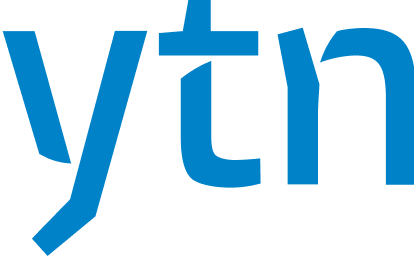A new collective agreement was established in the IT service sector last Friday in accordance with the Pact for Employment and Growth. The agreement covers the period from 1 November 2013 to 31 October 2016. The negotiations between the Association of IT Sector Employees and YTN were marked by good cooperation and the outcome was unanimously approved.
Head negotiators Esa Koskinen and Esa Schön say they were bound by the Pact for Employment and Growth in terms of the wage agreement. However, they managed to make progress in many areas, which compensates for the low wage solution. They hope that the members are pleased with the possibility of arranging reimbursement for international travel and improvements in the working hours banking system.
General salary raise
Salary adjustments were implemented as a general salary increase. This means that unless otherwise agreed locally, monthly salaries including benefits shall be increased by EUR 20 as a general raise no later than 1 March 2014. Unless otherwise agreed, local negotiations will be conducted with an employees’ representative by the end of November. The raises shall be entered into wage grids and the shift bonus will be increased by one percent on 1 March 2014. The second year salary solution is nearly identical, with an increase of 0.4 percent.
Travel regulation clarifications and international travel entries
Regulations concerning the reimbursement of travel expenses and daily allowance payments have been entered into the new collective agreement. The reference to the regulation of the Collective Agreement for State Civil Servants and Employees Under Contract was removed as it has caused many conflicts of interpretation. This clarifies matters. Unless locally otherwise agreed, no changes are made to current workplace reimbursement policies. Unlike before, the employees’ representative is authorised to settle international travel reimbursements.
Travel expense reimbursement regulations will also cover training related travel assigned by the employer. The daily allowance kilometre requirement is 40 kilometres. Private car use is reimbursed without the kilometre limit.
Improved access to information regarding remuneration systems
The agreement introduces a new element by allowing companies to employ workplace specific remuneration systems as long as this is locally agreed upon with the employees’ representative. While companies have been using such commercial systems of remuneration, accessing information concerning the systems has been difficult. Access to information has now been improved. In future, employees will have improved opportunities to clarify the grounds of their salary rate with the help of the employees’ representative.
Salaries based on workplace specific systems of remuneration must nevertheless comply with the minimum requirements specified in the collective agreement. In companies that do not establish workplace specific remuneration systems, employee salaries will be determined in accordance with the regulations of the collective agreement.
Occupational welfare through working hours banking and remote work
The Association of IT Sector Employees and YTN aim to increase the prevalence of flexible working hours systems in accordance with employee preferences. The negotiations managed to improve matters in this area.
The working hours banking system improvements concern the maximum balance and factors related to increasing the bank balance. Such factors include converting holiday pay into days off, and on call payments. Related arrangements can be agreed upon locally. Previously, employees were only allowed to transfer overtime remunerations and working hours exceeding the 40 hour limit to the system. The maximum bank balance will be increased from 15 to 20 days.
The collective agreement included an established remote work agreement model. The new agreement covers remote work instructions that determine the nature of remote work and the required content of remote work agreements. This is expected to facilitate remote work agreements. The instructions concerning remote work are advisory.
The increased significance of employees’ representatives
The new collective agreement extends the scope of local agreements and increases the right of access to information by the employees’ representative. This further increases the significance of employee representatives as workplace trustees. Employees’ representatives are better able to help members at workplaces when they have access to data concerning warnings given to employees, for example. Employees are naturally entitled to decline disclosing such information. Safety and employee representatives shall receive a 5 percent pay increase.
Working groups continue to develop occupational welfare, equality and staff representation
Some of the negotiation agenda will be tackled by working teams in accordance with the principles of continuous negotiation. Special attention will be paid to the work ability and workload of aging employees. The ’Good Work – Longer Working Career ’ joint occupational welfare project of the Federation of Finnish Technology Industries, the Union of Professional Engineers in Finland, YTN and other unions will continue.
The unions consider the promotion of gender equality a priority. A working group has been assigned with the task of covering the position of employees returning from family leave and mapping out methods of supporting fatherhood among industry workers as well as the more equal distribution of family leave.
Additionally, a working group will evaluate the functionality and scope of the employees’ representative system. The working group will investigate obstacles related to local agreements and good practices that generate trust.
The new collective agreement will be updated online in November. Union representatives may be able to distribute printed copies as early as December.
